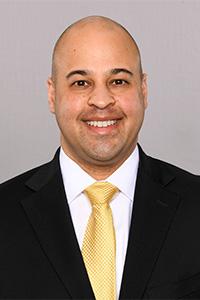Kinesiology
Request Information
By submitting this form, you agree to receive information about the Tulane School of Professional Advancement’s programs via email, phone and/or text. You may opt out at any time.

Kinesiology
The Kinesiology Program at the Tulane School of Professional Advancement is a gateway to rewarding careers that intersect health, science, and physical activity. This multidisciplinary field explores the mechanics of human movement, anatomy, and exercise physiology. With a focus on promoting overall well-being, our degrees and certificates prepare you to understand and address diverse aspects of human performance, rehabilitation, and preventive healthcare.
Graduates are poised for careers as fitness trainers, physical therapists, sports coaches, or health educators. The degree not only provides a deep understanding of the human body but also fosters critical thinking and analytical skills, preparing individuals to make meaningful contributions to the health and fitness industry.

Affordable
Tuition

No Test
Scores

Rolling
Admission

Multiple
Start Dates

Expert
Faculty
Degrees & Certificates
Master's Degree
- Earn an MS in Sport Studies by completing coursework in two certificate programs, plus three required core courses, for a total of 33 credits.
- Learn more
Bachelor's Degrees
- Ideal for anyone interested in promoting a healthy lifestyle and working in clinical healthcare settings.
- 120 credits, including 40 credits in the major
- Learn more
- Perfect field of study for those who want to become advocates for healthy living.
- 120 credits, including 30 credits in the major
- Learn more
- Earn a master’s degree in just 12 courses
- Learn more
Visit our Frequently Asked Questions page to learn more about our programs and degrees.

SoPA Student Spotlight
“What I enjoyed most about being a SoPA student was the encouragement and patience of the professors as well as the flexibility of the online classes. I’m extremely grateful for that experience and the opportunity to earn my master’s degree at a manageable pace.”
Doshia Woods
Tulane SoPA class of 2020
Faculty Who Practice What They Teach
Our kinesiology faculty are outstanding practitioners in the field who share their expertise and experience with our students.

Meet the Director
“I love teaching Motor Learning. It is a required course for Exercise Science students. Motor Learning is the basis of everything we do in life. It is the study of how we learn and acquire skills so it really is the basis of how we are able to operate in the world.”
Lanie Dornier, Ph.D.
Kinesiology Program Director
Engaging & Flexible Student Experience, On-Campus & Online
Partnerships that translate into industry certifications, credit for experience, & career advancement opportunities.
Never watch a boring PowerPoint. We’ve developed the most interactive courses around.
Our courses are constantly refreshed and informed by what leaders in kinesiology fields expect from graduates.
Navigate degree requirements and prepare for the workforce with help from our academic advisors and career counselor.
Meet the Advisory Board
The Kinesiology curriculum is guided by experienced faculty and a knowledgeable advisory board that helps ensure the most up-to-date and relevant skillsets are being taught to our students.
Featured Members
- Department Head, Department of Physical Therapy, LSU Health New Orleans
- Associate Athletic Director/Senior Woman Administrator, Tulane University
- General Manager, Pittsburgh Steelers
- Owner, Recovery ChiroMed
Facts at a Glance
Tulane SoPA accepts students on a rolling basis, year-round. Start dates every August, January, and May. We never require test scores or recommendations. Visit our Admissions Process page to learn more.
All tuition is charged by the credit hour and we have minimal fees. Visit our tuition page to see our current tuition rates and use our net price calculator.
We strive to make a Tulane SoPA education affordable for all students. Learn about financial aid, discounts and scholarship opportunities here.
Earn credit for your work experience through a portfolio assessment. Undergraduates can earn up to 24 portfolio credits. Graduate students can earn up to 6 portfolio credits.
SoPA offers career advising to all enrolled students.

Enter your email to download our Kinesiology e-brochure.
By submitting this form, you agree to receive information about the Tulane School of Professional Advancement’s programs via email, phone and/or text. You may opt out at any time.












